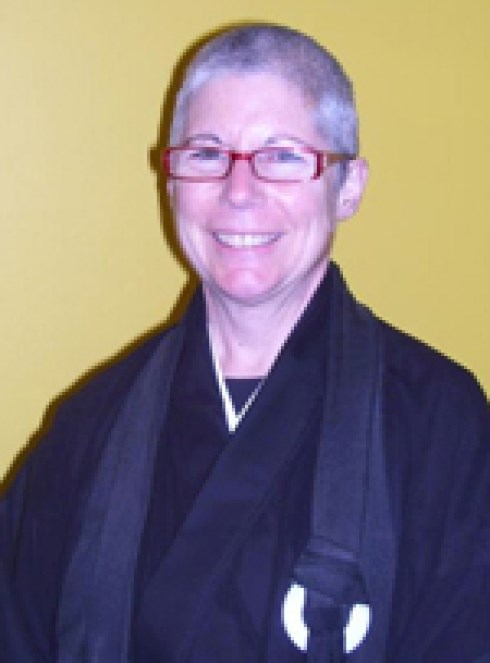The point of Zen Buddhism is awakening, to live life in a state of openness to what is going on right now, in this moment. As I meditate daily, I become aware that much of my life is run by habit patterns. I habitually reach out for what I like, for more of that, and I avoid things I don’t like. In Buddhist literature these are called greed and anger, and go together with delusion. Delusion is the tendency to lie to ourselves.
When you investigate for yourself you can actually see ‘greed, anger, and delusion’ at work in your everyday decisions about life: what you wore today, who you’re attracted to, what you eat and why. These choices are all affected by the unconscious habit of leaning in towards what you like and avoiding what you don’t.
In Zen training we are asked to lean in to the discomfort, lean in to the things we don’t want or like, because much can be learned from attention to our feelings about them and our opinions of them.
When I think about Tent City with this in mind, I notice I literally don’t want to go there. I’m afraid of the media portrayal of violence, mental illness, and confrontation. I’d rather stay away.
However, what I found when I went there was that it was a welcoming, orderly place.
Yes, there is a lot of suffering there. These people, because they are poor, have suffered from discrimination, stereotyping, social exclusion, criminalization, and violence. All of these have physical and mental health impacts leading to more illness, addiction, and malnutrition.
There are also people willing to help them, people willing to help each other, and a governing council created by residents of Tent City.
What I read in the media, is that drug traffickers are making life difficult in the camp, victimizing the other residents and sending the service providers away. What I hear though, is that there aren’t two types of poor people there, the good and the bad, there are just people doing the best they can to get along in difficult circumstances.
What I hear is that Tent City residents, tired of the lack of consultation around what services they would be offered, demanded a voice. On the surface this seems ungrateful, but when I lean in and look carefully I know that I would not appreciate charity, I would want a say in how I was treated.
Using those same clear eyes I see my ignorance and delusion in thinking that housing is readily available if people only tried harder and worked harder. I have also mistakenly believed the stereotype of the violent mentally ill homeless person, and have to see beyond that. Yes there is violence and crime in Victoria, but not all the time, and not just in Tent City.
Really seeing Tent City is not pleasant. Because the suffering seems intractable, no one wants a camp of homeless people in their neighbourhood.
It’s natural to turn away from this, to fall into the delusion that homelessness can be pushed elsewhere. Mentally ‘turning away’ (demanding the dismantling of tent city, moving the homeless to temporary shelters, not permanent housing) has a high cost, and the cost is that the suffering will continue.
Imagine instead in our city everyone having a home – a place to live that meets their needs, where they can be safe, make their own decisions about their lives, and have privacy and dignity.
We can achieve this if we dig deeper, see how inter-connected we are, and take the time to see clearly.
 Soshin McMurchy is a junior priest with Zenwest Buddhist Society, and serves as the Buddhist Chaplain with the University of Victoria Multifaith Services. She works part-time at the Greater Victoria Public Library and lives in Victoria with her partner of 39 years.
Soshin McMurchy is a junior priest with Zenwest Buddhist Society, and serves as the Buddhist Chaplain with the University of Victoria Multifaith Services. She works part-time at the Greater Victoria Public Library and lives in Victoria with her partner of 39 years.
You can read more articles on our interfaith blog, Spiritually Speaking,
*This article was published in the print edition of the sa���ʴ�ý on Saturday, June 4 2016


